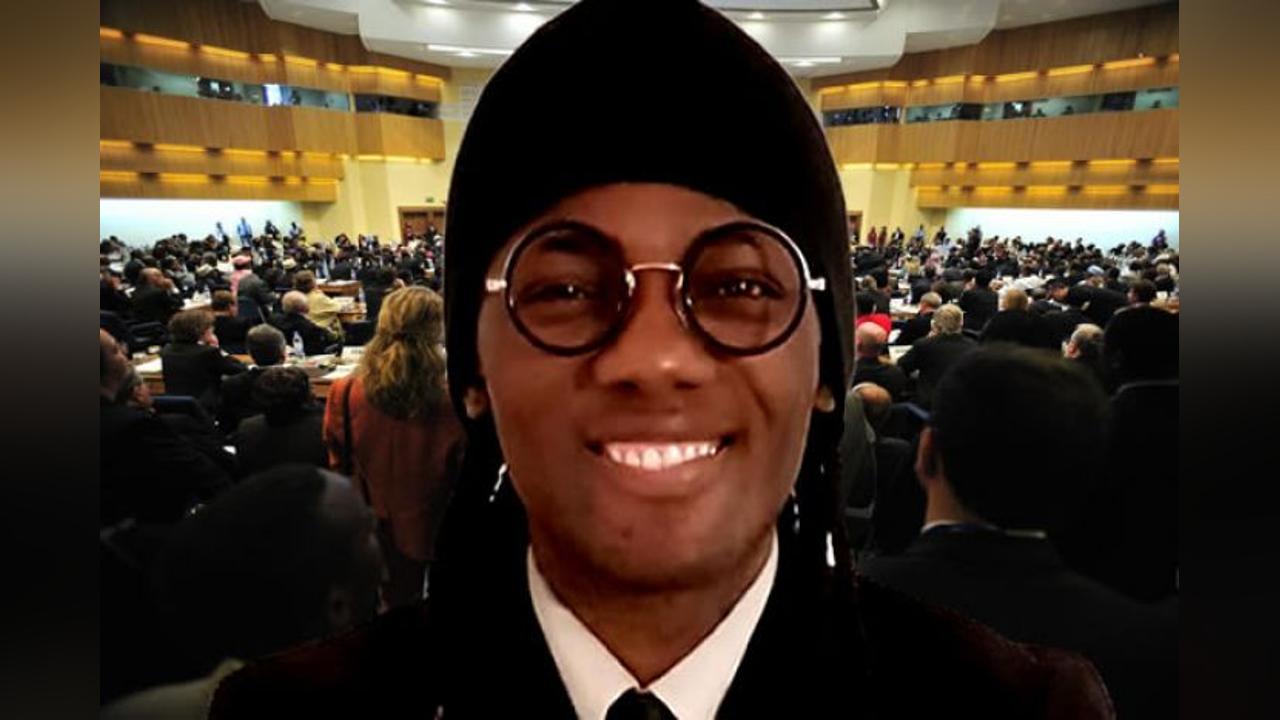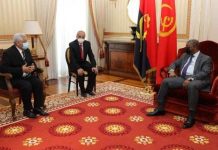Africa-Press – Angola. After the creation and entry into operation of the ICC in 2002, a new perspective and dynamic emerged in the conduct of international criminal justice, giving this global jurisdictional body the power to judge serious crimes such as: crimes of genocide, crimes of aggression, war crimes and crimes against humanity, as provided for in paragraph 1, paragraphs a), b), c) and d), of article 5 of the Treaty of Rome.
The presence of the ICC established unprecedented international criminal standards in the resolution of international cases, which made it possible to fill the constitutional gaps of States and the procedural gaps of the ordinary international tribunals and ad hoc tribunals that preceded it (International Military Tribunal at Nuremberg 1945-1946; International Military Tribunal for the Far East, also known as the Tokyo Tribunal 1946-1948; International Criminal Tribunal for the Former Yugoslavia 1993-2017; ad hoc Tribunal for Rwanda 1994-2015).
All these Tribunals were established for political reasons to judge crimes of international relevance, with the aim of convicting the guilty, as occurred, but these judicial bodies were not free from irregularities and procedural injustice: much of the material evidence was not properly analyzed, the principle of the presumption of innocence was not considered relevant, as was the case in Nuremberg, in Tokyo and in the Tutsi trial, many defendants were convicted for allegedly having had contact with Nazis or for allegedly having participated in the genocides, many of the witnesses against the accused were not credible, the same applies to certain forged evidence, as these were trials where the sentences were practically pre-determined, the processes were more political than legal.
At Nuremberg, after the end of World War II, historian Tzvetan Todorov (2001, p. 31), when referring to the punishment of crimes committed by Hitler’s military officers and high-ranking leaders, formulated his opinion as follows: “The question was never: should the Nazi leaders be punished or should they be released? The question was: should they be executed without trial or should they be tried? Josef Stalin leaned toward the first solution, and offered his offices to eliminate 50 or 100 thousand Germans, since he had extensive experience in this. The American Secretary of the Treasury, Henry Morgenthau Jr., cruelly proposed deporting several million Germans to another part of the globe; the Turks, for example, got along well with foreign populations (such as the Armenians), he recalled. Churchill and Roosevelt even considered the possibility of castrating the male population of Germany. Only the legalism of Henry Stimson, the United States Secretary of War, allowed the final decision to end up being the Nuremberg Tribunal, where the defendants could count on a lawyer, witnesses were required to testify, and a defendant could even be acquitted of his crimes or participation in the genocide against the Jews.”
The difference between these Courts and the ICC is that the ICC has the status of a permanent and impartial Court, operates in accordance with the guidelines of International Human Rights Law, and has solid, efficient and democratic legal procedures, centered on international criminal justice.
The scope of the ICC’s activities is universal, and its jurisdiction is limited to the States Parties, as established by the Principle of Complementarity. This principle represents the main element of jurisdictional link in the dynamics of relations between the ICC and national courts. Complementarity “gives to States the primary responsibility for prosecuting those presumed responsible for the most serious international crimes and leaves to the ICC the final responsibility for acting in cases of inactivity on the part of State authorities or in the event that the proceedings instituted demonstrate the incapacity or unwillingness of the Member State to pursue criminal prosecution”.
Therefore, in the case of an international crime committed by a leader or citizen who enjoys diplomatic privileges and immunities, how should the ICC proceed? Should these leaders be tried or not? What legal procedures should be used and observed? It is important to emphasize that diplomatic immunities are not all the same. For example, the immunities of a diplomatic or consular agent are not the same as those of a Magistrate, since the immunity of a diplomatic and consular agent is only valid abroad, while that of a Magistrate is valid both internally and externally, just like the immunities of a Parliamentarian.
Different from all these immunities, there is the immunity of a Head of State or Government, here the procedural mechanism changes completely, whether in the case of an international crime or a crime of State responsibility. However, the ICC provides in its statutes, particularly in Article 27, the “Principle of Irrelevance of Official Capacity”. This principle determines “that the law is equal for everyone, and that regardless of the status or public functions that someone holds in society, it is possible for them to be held accountable, whether they are Heads of State or Government, Ministers, Governors, Parliamentarians, Magistrates, Diplomats, among other State authorities, without any privilege or immunity, if they have committed serious crimes within the jurisdiction of the Court”. This Principle was included in the Rome Statute because “the crimes within the jurisdiction of the Court are, in the vast majority, committed and undertaken by political agents who, taking advantage of their position, use the state machinery to achieve their purposes and end up evading their responsibilities for privileges granted by the national legal system. Therefore, it is at this point that the inclusion of this legal provision is shown to be important, since it decides to put an end to the impunity of the perpetrators of these crimes”.
The implementation of the Principle of Irrelevance of Official Capacity is more symbolic than factual. Its procedure is complex, since immunities are synonymous with “solid barriers.” Even in the presence of a serious international crime, such state figures cannot be automatically arrested. This would be a violation of diplomatic immunities. Therefore, in the case of flagrant crime, the person enjoying immunity may be detained, not arrested (the latter is the result of a sentence). After the arrest, the ICC must request the Government of the offender/accused to waive their immunities. Otherwise, the Court will not be able to proceed with the proceedings, as provided for in Article 98 of the Rome Statute. In this case, the accused must be released immediately.
It is worth remembering once again that the ICC only has jurisdiction in States that have ratified the Rome Statute. If an international crime is committed by a citizen of a non-ICC Member State, even if the crime is proven, the ICC alone will not be able to act against such a citizen. Therefore, the arrest warrants against President Vladimir Putin and Israeli Prime Minister Benjamin Netanyahu are completely illegal and unfounded, and have no legal basis, because neither Russia nor Israel are Members of the ICC. Such warrants were based on political issues (political pressure) because of the ongoing conflicts, but from a legal point of view, such arrest warrants are not subject to analysis and execution.
There is only one way for the ICC to open a criminal case against a citizen of a non-Member State, and this is only possible “when the United Nations Security Council, by adopting a resolution, decides to refer the situation to the ICC, which allows the Court to exercise its jurisdiction over crimes committed in the non-Member State, even if it is not a party to the Rome Statute”, as provided for in Article 15bis and Article 15 of the Rome Statute. For these specific cases, the ICC must obtain authorization from the UNSC, otherwise it will be an illegal warrant, or merely symbolic to spark media and political debates.
One of the concrete examples of an arrest warrant against a citizen of a non-Member State is Resolution No. 1593 (2005), adopted by the United Nations Security Council on 31 March 2005, which authorises the ICC to investigate the crimes of genocide and crimes against humanity committed at the behest of the former President of Sudan, Omar Hassan Ahmad Al-Bashir, during the conflict in the Darfur Region in 2003. The arrest warrant against Al-Bashir was officially issued by the ICC on 4 March 2009. The warrant was never respected by the Sudanese courts, as this State does not recognise the jurisdiction of the ICC, but as it is a UNSC Resolution, legally, the warrant should have been executed, but Sudan is an unstable country, having been in a civil war for years, and there is no effective government there, which makes it difficult to execute the ICC warrant.
The UN Security Council is the only global body that has political, diplomatic, economic, legal and military powers, as established in Chapter VII of the UN Charter: the “Council may make any recommendations and determine what steps and procedures to be followed by States, Governments or Regional and International Organizations”. It is precisely here that the authorizations for warrants that the ICC needs to follow in non-Member States, or in any other situation of an international nature, are decided and drawn up. For this and other reasons, there is much debate as to whether the ICC actually has effective independence.
However, regardless of the international procedural complexities, ICC arrest warrants are “void” against the diplomatic immunities of a Head of State in office. Such warrants would only have procedural enforcement power once the Head of State ceased to hold office, or warrants against a Minister or Governor, but not against a President, otherwise we would be faced with a “dilemma” of international law itself (on this subject I advise you to read my previous articles on the Vienna Conventions of 1961 and 1963 concerning immunities).
Insisting on such criminal proceedings while a Head of State is in office would legally require a broad analysis and debate on possible reforms and revisions of diplomatic immunities, which would in fact be a kind of international legal contradiction, since no International Convention or Protocol, to date, explicitly provides, without margins of legal interpretation, for the tacit cancellation of the immunities of a President or Head of Government in office, through an international arrest warrant. Such procedures take place more at the domestic level through Impeachment, which is a political (not legal) process/trial, where the Head of State may lose his mandate if he is found guilty of his crimes or of High Treason to the Homeland, State responsibility, violation of human rights, etc.
The ICC arrest warrants against President Vladimir Putin and Israeli Prime Minister Benjamin Netanyahu were based on political procedures. That is not the ICC’s role; its role is based on legal procedures: to observe the Statutes and Regulations, while also taking into account International Conventions, Treaties and Protocols. Such instruments already exist; all you need to do is master them and know how to apply them correctly, because knowledge is universal. Just because you are an ICC judge does not mean you should state and decide something that is contrary to the rules and everyone should agree.
The ICC is based in The Hague (Netherlands). In The Hague, another court, called the Special Court for the Crime of Aggression against Ukraine (which will officially start operating soon), has come out and said that it “will not try President Vladimir Putin as long as he remains President of the Russian Federation”. This statement by the Special Court, in addition to reinforcing everything I have already argued (based on the rules and authentic international knowledge about the immunities of Heads of State and Government), also invalidates the ICC’s arrest warrants, because, as I said, they are warrants without legal grounds.
NOTE: As the International Convention on “International Law” approaches, the main topics will be the UN, ICC, EU, AU. Leonardo Quarenta was suggested to talk about the “African Court of Justice and Human Rights”… The Angolan government should return diplomatic passports to ordinary magistrates, because, in addition to being an unconstitutional act, it is a clear violation of International Law.
Diplomatic Law
International Law
International Criminal Justice
International Protocols
By: Leonardo Quarenta, Ph.D.
PhD in Constitutional and International Law.
ANGOLA24
For More News And Analysis About Angola Follow Africa-Press






